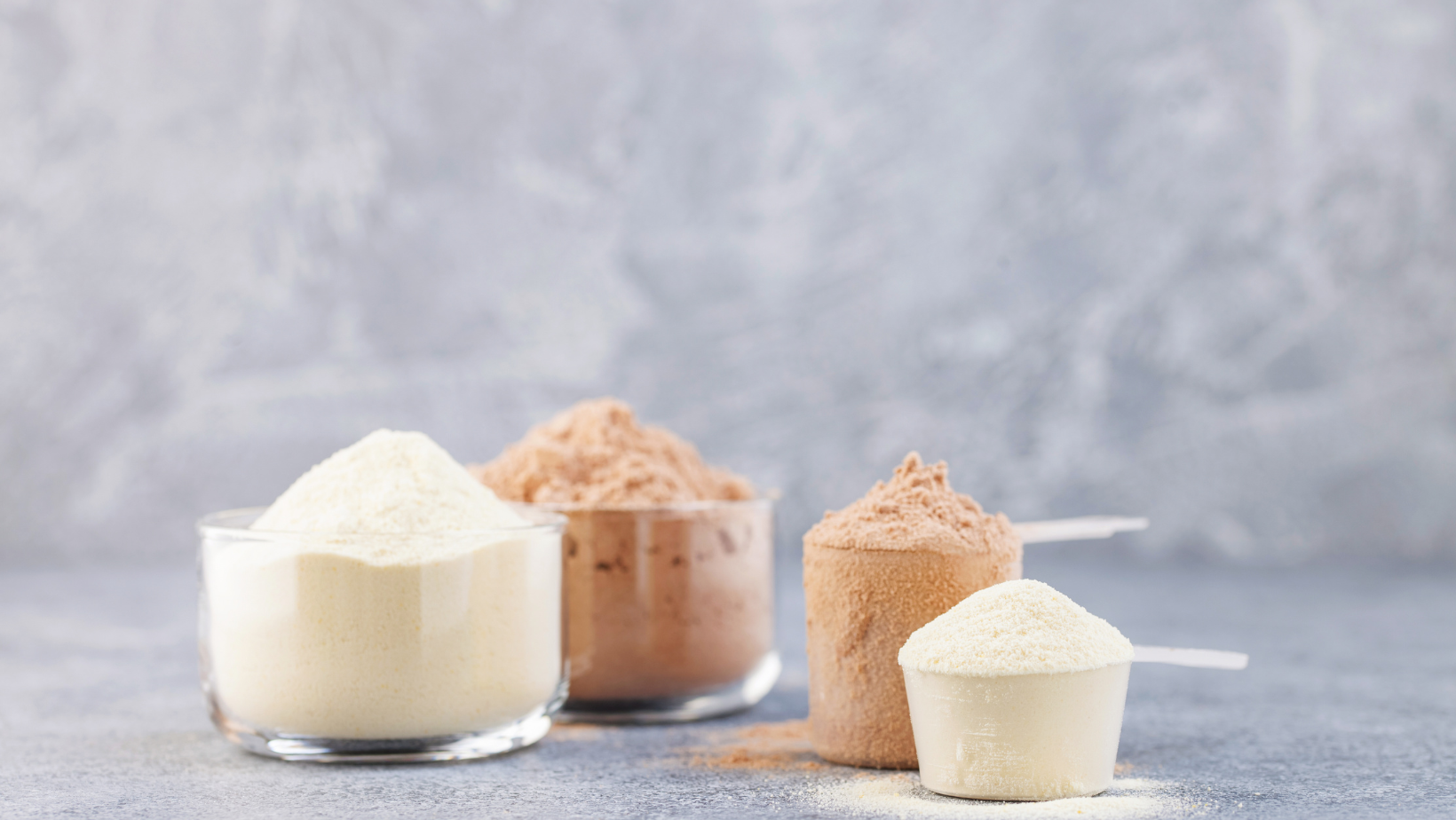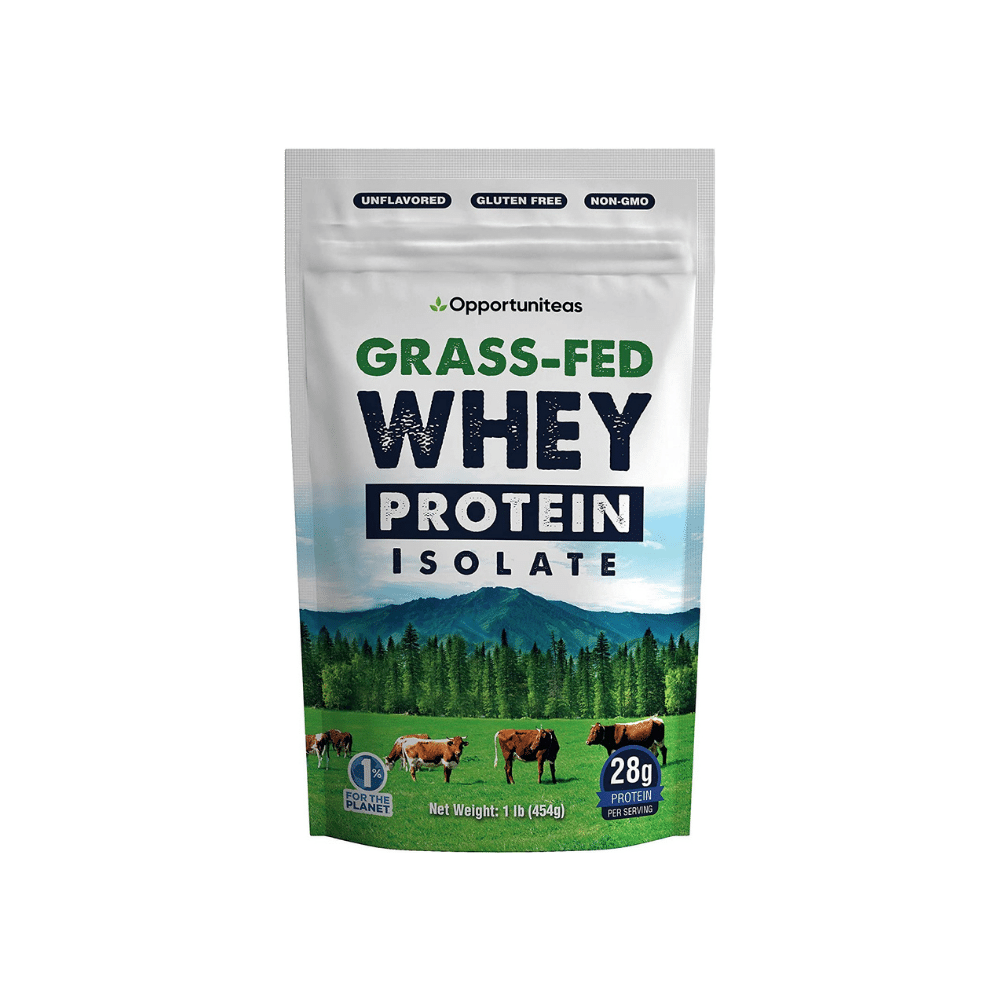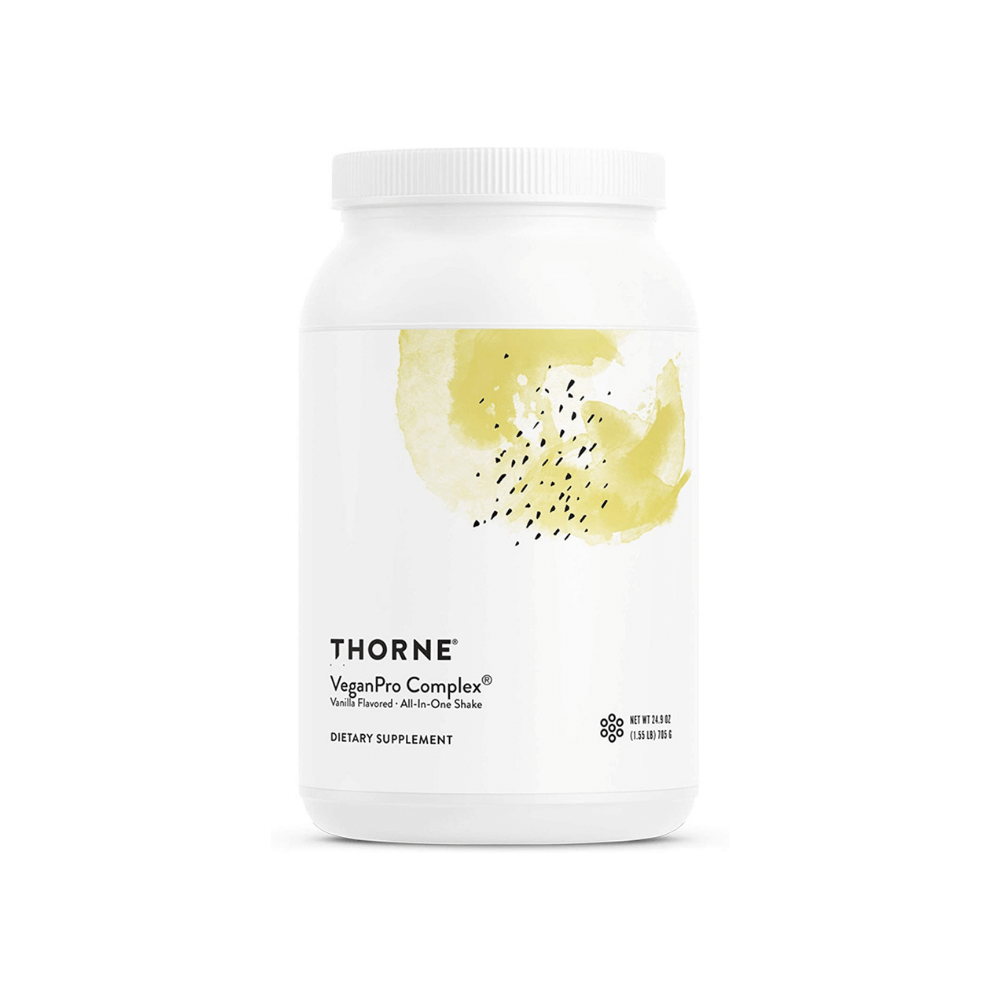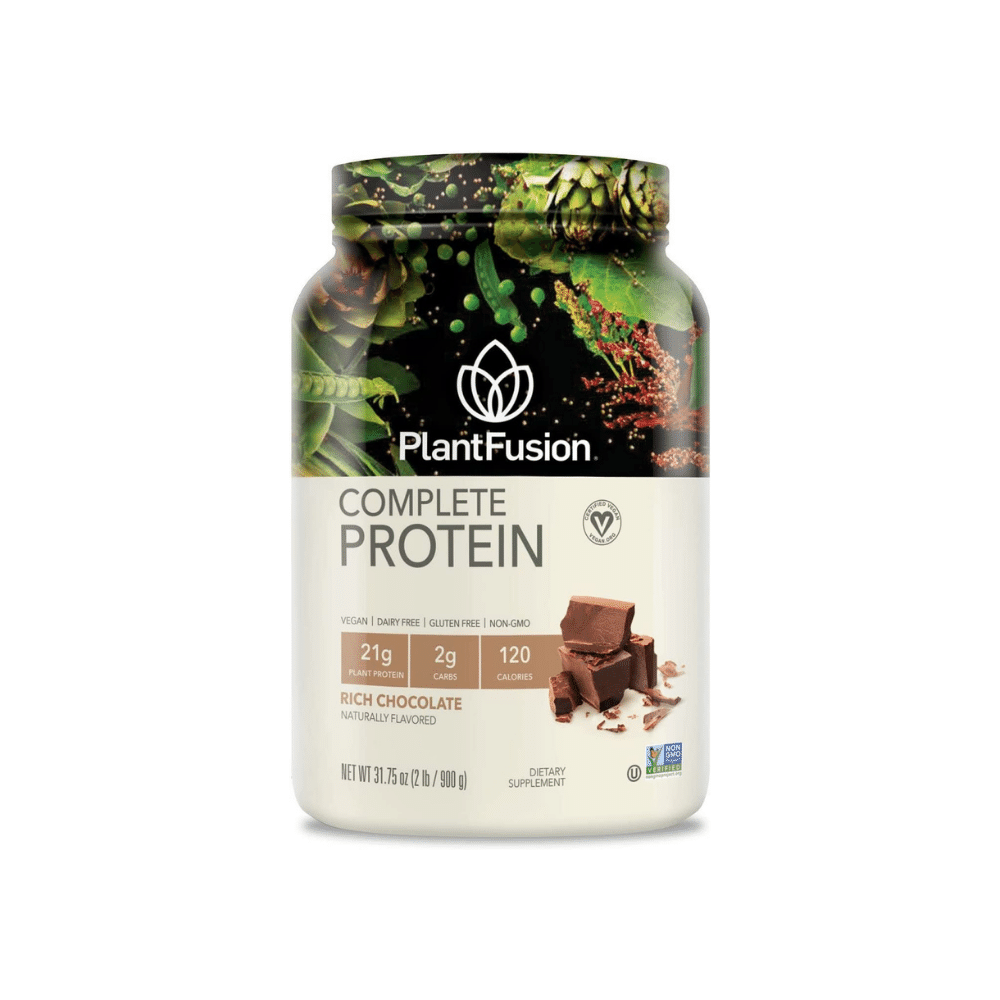Gluten-Free Protein Powder: A Complete Review
Gluten-free protein powders are for people with celiac disease or gluten sensitivity to help them achieve their weight and fitness goals.

If you're following a gluten-free diet, you may be overwhelmed by the sheer number of different protein powders available on the market.
Gluten is a type of protein found in wheat, barley, and oats. Most protein powders on the marketplace use milk-derived proteins to provide the bulk nutrients, but you may occasionally come across protein powders that contain gluten.
Gluten-free products are becoming increasingly popular, but some of them are highly processed, which could mean they contain gluten. If you have gluten sensitivity or celiac disease, what protein powders can you take? Fortunately, manufacturers have come out with several different choices and a variety of tastes.
How We Choose the Best Gluten-free Protein Powder
There are hundreds (or thousands) of different protein powders out there. Most include whey, which comes from cows' milk, but some contain soy protein or other plant-based proteins. Some also include caseins, which are proteins found in cow's milk.
Types of proteins: Protein powders may be a source of animal or plant protein. Plant-based products usually contain soy, hemp, and pea proteins, whereas animal-based ones usually contain whey, caseins, and eggs.
Ingredients: Some protein powder products may contain artificial colors, flavors, and added sugars. Read the ingredients list carefully before buying.
Protein powder: Some contain more fiber than others. Fiber helps people feel full, which may help them manage their weight.
Isolates vs. concentrate: Whey isolate contains more protein than concentrate and has minimal fat and carbohydrates, including lactose. Lactose intolerant people may benefit from using this type of protein powder.
Nutritional requirements: People with dietary restrictions should ensure the protein powder meets their dietary requirements.
Flavors: Protein powders come in different flavors and are unflavoured. Unflavored protein powders are more versatile and may be better suited for people who use them for cooking or baking.
Costs: Prices vary across brands. Some types of protein powder, including whey isolate, may cost more than whey concentrate, such as casein.
Gluten-Free Protein Powders on our list
- For unflavored protein powder: Grass-fed whey protein isolate
- For organic diets: Orgain Organic Plant-Based Protein Powder
- For those on the go: Vega Protein Shake
- For meal replacements: Thorne Research MediPro Vegan All-In-One Shake
- For low-carb diets: PlantFusion Complete Protein Powder
This grass-fed whey protein isolate is unflavored with no additional ingredients, no added sugar, sweeteners, preservatives, colors, or artificial flavors. It is made from the milk of grass-fed, hormone-free cows raised in New Zealand.
With 28 grams of protein in each serving helps you to support strong muscles and fast recovery from exercise. Whey protein isolate is the perfect pre or post-workout protein supplement for your next shake, smoothie, drink, juice, cooking, or baking recipe. The simple ingredients are easy to digest.
Thorne Research, which manufactures vitamin and other nutritional supplements, plans to market it as an all-inclusive complete meal replacement. It comes in vanilla, and chocolate flavors, and includes pea, chlorella, and chia seed, plus added vitamins and mineral supplements.
It's gluten-free, soy-free, dairy-free, GMO-free, contains no artificial flavors or sweeteners, and is made from organic ingredients. Thorne Research does not produce any products containing gluten.
The primary source of protein in PlantFusion's products is made from organic pea protein, artichoke protein, organic sprouted amaranth powder, organic sprouted quinoa, and fructose plus stevia and guar gum.
It can be found in chocolate, chocolate raspberry, cookies & cremes (gluten-free), vanilla bean, and natural unflavored. All flavors are considered "gluten-free" to under 20 parts per million, as determined by the company.
This plant-based, gluten-free protein powder has 21 grams of protein, from a source of peas, brown rice protein, and chia seeds per 150 calories. Additional nutritional values per 100 grams (3.5 ounces) include 5 grams of fiber. It also contains stevia for sweetness, sea salt, acacia gum, and natural flavors.
Organic, kosher, and suitable for vegans, lactose-intolerant people, and people following a dairy-, lactose-, or soy-free diet are some of the features of the product. It is available in both sweet vanilla, peanut butter, and creamy chocolate flavors. Mixing two scoops of protein powder into a liquid while baking is recommended.
Vega claims that its products are made from high-quality protein, and real whole foods, including a blend of pea protein, pea starch, flaxseed oil, hemp protein, organic gelatinized maca root, broccoli, kale, spirulina, and green algae. It also includes a blend of vegetables and fruits, such as carrots, beet, cranberries, and berries.
It comes in a wide variety of flavors: chocolate, chocolate almond (or hazelnut), french vanilla, mixed berry, mocha, natural, natural unsweetened, and vanilla chai. It’s gluten-free, vegan certified, soy-free, dairy-free, and has no artificial ingredients. This plant-based powder includes 20 grams of protein blend from peas, sunflower seeds, and organic pumpkin seeds. Other ingredients include eggs and butter.
It contains protein, fiber, omega-3 fatty acids, and 11 vitamins per serving, making it complete nutrition. Vega states that this supplement is GMO-free and suitable for vegans. It's made from soy and dairy-free ingredients has a low glycemic index and doesn't contain any artificial ingredients. It is recommended that this product be chilled and give it a good shake before drinking. Vega Protein Shakes are available in vanilla and chocolate flavor.
What is Protein Powder?
Protein, which is made up of amino acids, is an essential macronutrient, along with carbohydrates and fat. Proteins provide the building blocks for muscles and cells in the body. Amino acids cannot be stored in the body.
Protein powders are nutritional supplements derived from animals, plants, or milk. You could add protein powder to baked foods or drinks, such as milkshakes and smoothies in your diet.
Benefits of Protein Powder
Supplementing protein powder has several health benefits, including:
Weight loss: Protein-rich diets help people feel full longer, which leads to lower calorie intake and weight loss. A more recent study showed that people who are overweight or obese had better body composition and improvements in cardiac disease risk through protein supplementation.
Muscle recovery: A 2018 review found protein supplementation after a resistance training session improves physical performance and enhances muscle repair. Similar research found that consuming whey protein after exercise restored muscle function and enhanced muscle strength.
Muscle mass maintenance and growth: Taking more protein during resistance training could help the body maximize the benefits of protein. However, a study shows that the amounts of protein consume during a workout has no significant effect on muscle building.
Nutritional supplement: Those who need extra protein for themselves may benefit from taking protein powders. Protein powder especially helps vegans and vegetarians meet their daily protein requirements.
What Are The Different Types Of Protein Powder?
Both animal and plant protein powders contain at least three categories of protein—but usually all three.
Protein concentrates contain 60-80% protein. The rest of the concentrate contains fats and carbs. It's the most common and easiest-to-make type of protein.
Proteins isolates are essential amino acids, which are then combined into proteins. If you're looking for a pure protein source, then isolates are usually the best option.
Protein hydrolysates are created by breaking down proteins into smaller pieces, making them easier to digest and absorb than whole proteins.
Whey: protein is the most popular source of protein in the marketplace because it contains all 9 amino acids necessary to synthesize proteins. Leucine, isoleucine, and valine are found in high concentrations in milk proteins. Whey protein is an easily digestible protein that can be absorbed into the bloodstream within 20 minutes. It’s perfect for post-workout muscle recovery.
Casein: Casein is a protein source in dairy products. Casein protein is slower to digest than whey so it's a good choice for a meal replacement between meals or before bed.
Milk protein concentrates and isolates save time for digestion, but they don't digest as fast as whole milk proteins. These ingredients are commonly found in ready-to-drink beverages and protein powders.
People who are sensitive to dairy can use plant-based protein powders. Many single-source vegan protein powders don't provide a full protein profile, so they're often mixed with other sources.
Egg protein mixes easily and can be found either on its own or combined with other proteins. This can be a safe choice for people who are lactose intolerant.
Do You Need Protein Powder?
Some people can get enough protein from eating a balanced diet alone. Many people try to lose weight by eating less, but they end up finding that it's hard and just plain uncomfortable. Protein powders can be convenient at times.
The recommended daily protein intake begins at 0.8 grams per kilogram of body weight for sedentary 18 years old and older, or 0.36 grams per lb of body weight. For children ages 4–18 years, the recommended daily dose is 1.5 grams of protein per kg of body weight.
But several factors can help you consume significantly more, including
- Increased activity level
- Preserving muscle mass while dieting
- Training to gain muscle or strength
- Age-related muscle loss
Gluten-Free Protein Powder FAQs
When is the best time to take protein powder?
For most people who want to lose weight or maintain muscle mass, taking protein powder at any time of day is okay. It's a good idea to take your protein evenly throughout the day to maximize its filling effects.
However, if your primary goal is muscle growth or recovery from exercise, you may find that consuming protein within two hours after exercise is optimal. This promotes muscle repair.
What kind of protein powder is gluten-free?
Whey protein doesn't contain gluten. You may see wheys listed as "whey concentrate", "whey isolate" or "whey hydrolysate" on the package. All of these types of whey protein are free of gluten and are safe for people who have celiac disease.
Can people with celiac disease take protein powder?
Whey protein powder is naturally gluten-free. However, some brands may have cross-contamination with gluten. Look for protein powders that have been independently tested to ensure they meet specific nutritional standards.
Does whey protein isolate have gluten?
Whey protein concentrates are sold as concentrates, isolates, or hydrolysates. All three types are gluten-free when they're made without any added ingredients. Concentrated protein powders contain more fat, carbs, and lactose than isolates or hydrolyzed proteins.
Do oats have gluten?
Uncontaminated oats are gluten-free. Under the U.S.D.A, oats are considered a gluten-free grain. Only products containing less than 20 parts per billion of gluten overall must be labeled as gluten-free.
Does almond milk has gluten?
Almond milk is naturally gluten-free, and most commercial brands of almond milk are gluten-free as well. You might want to check the labels of flavored almond milk to see if they contain gluten-containing ingredients.
Final Thoughts
Protein powders can be used as a dietary supplement and meal substitute when on the go, and people who have celiac disease or have gluten sensitivity and follow a gluten-free diet can have many alternative options.






